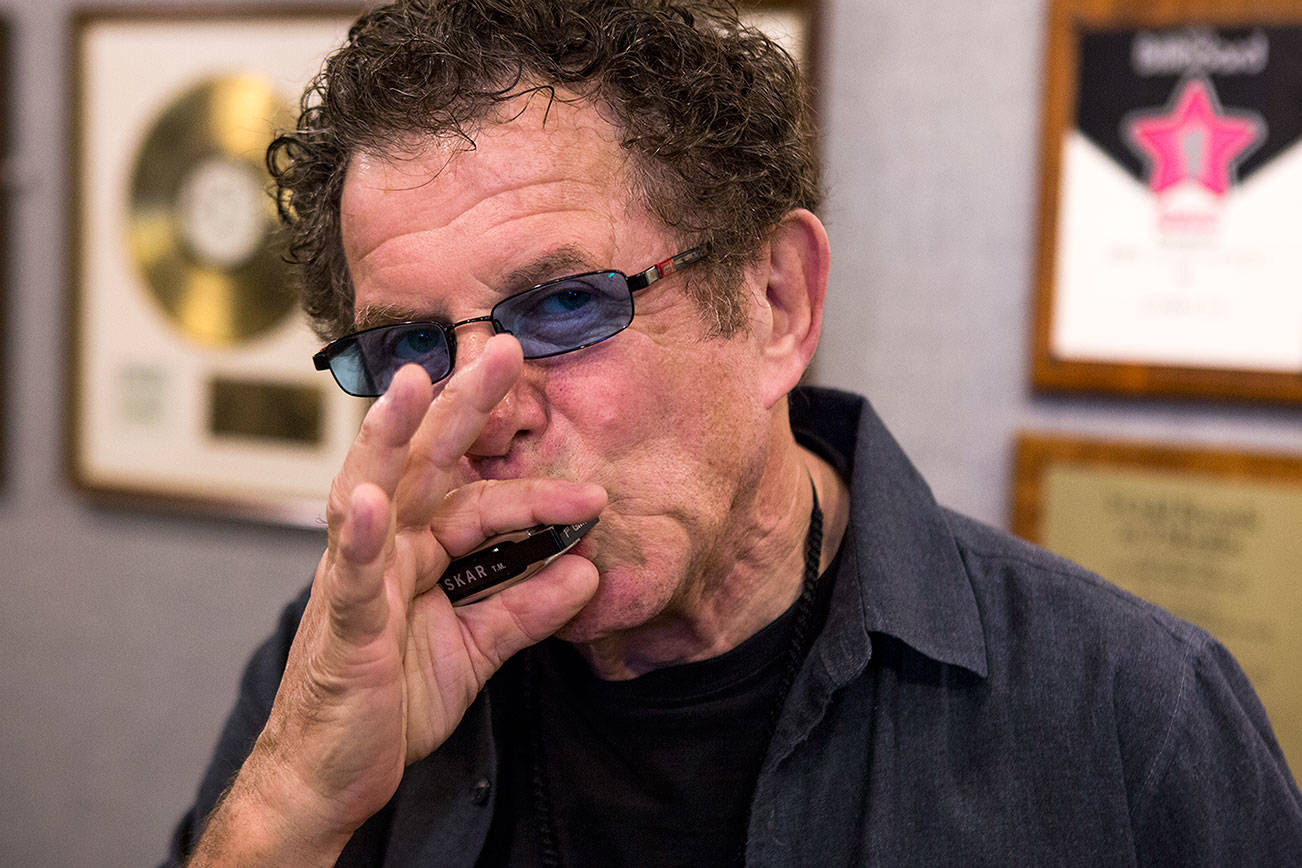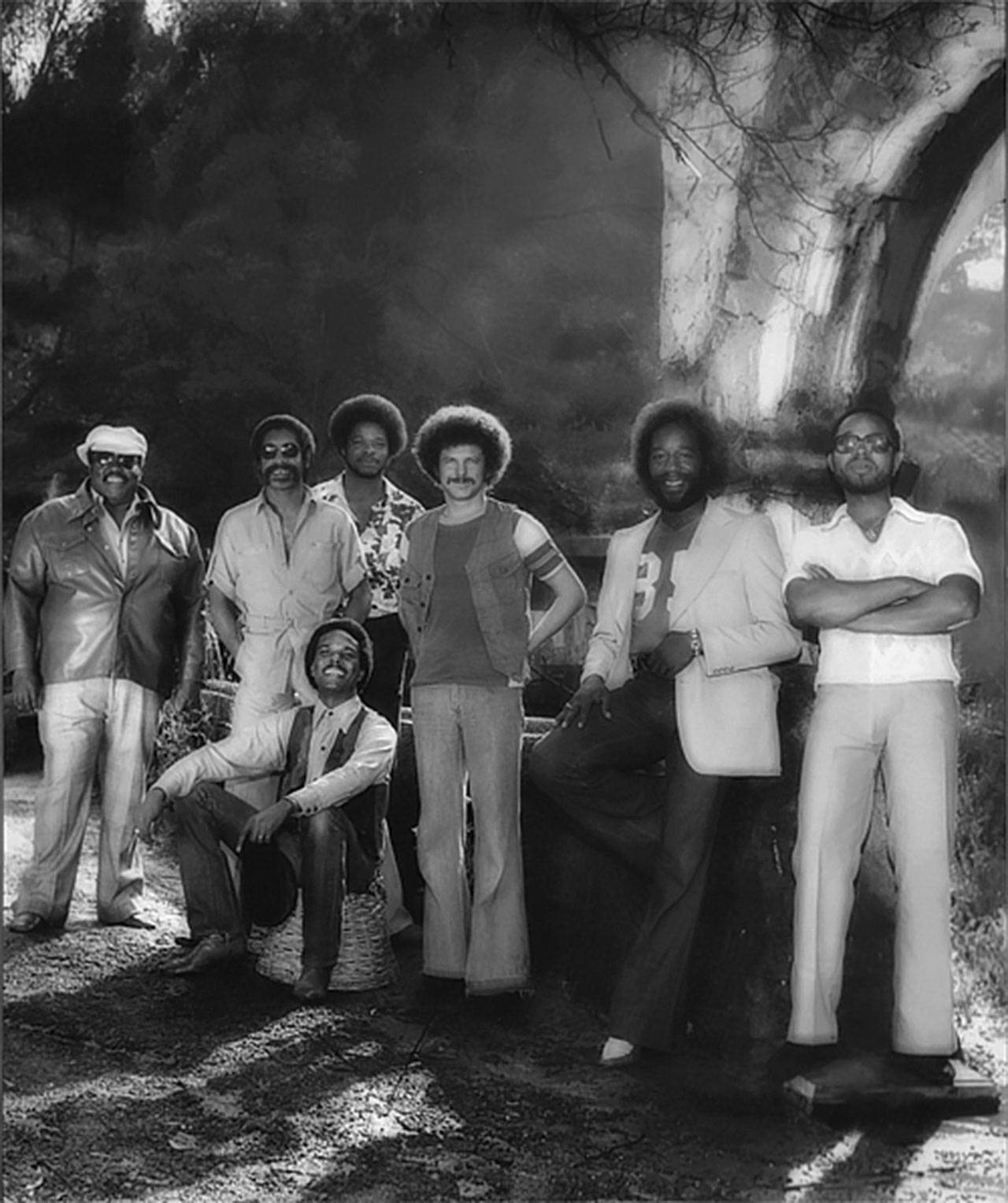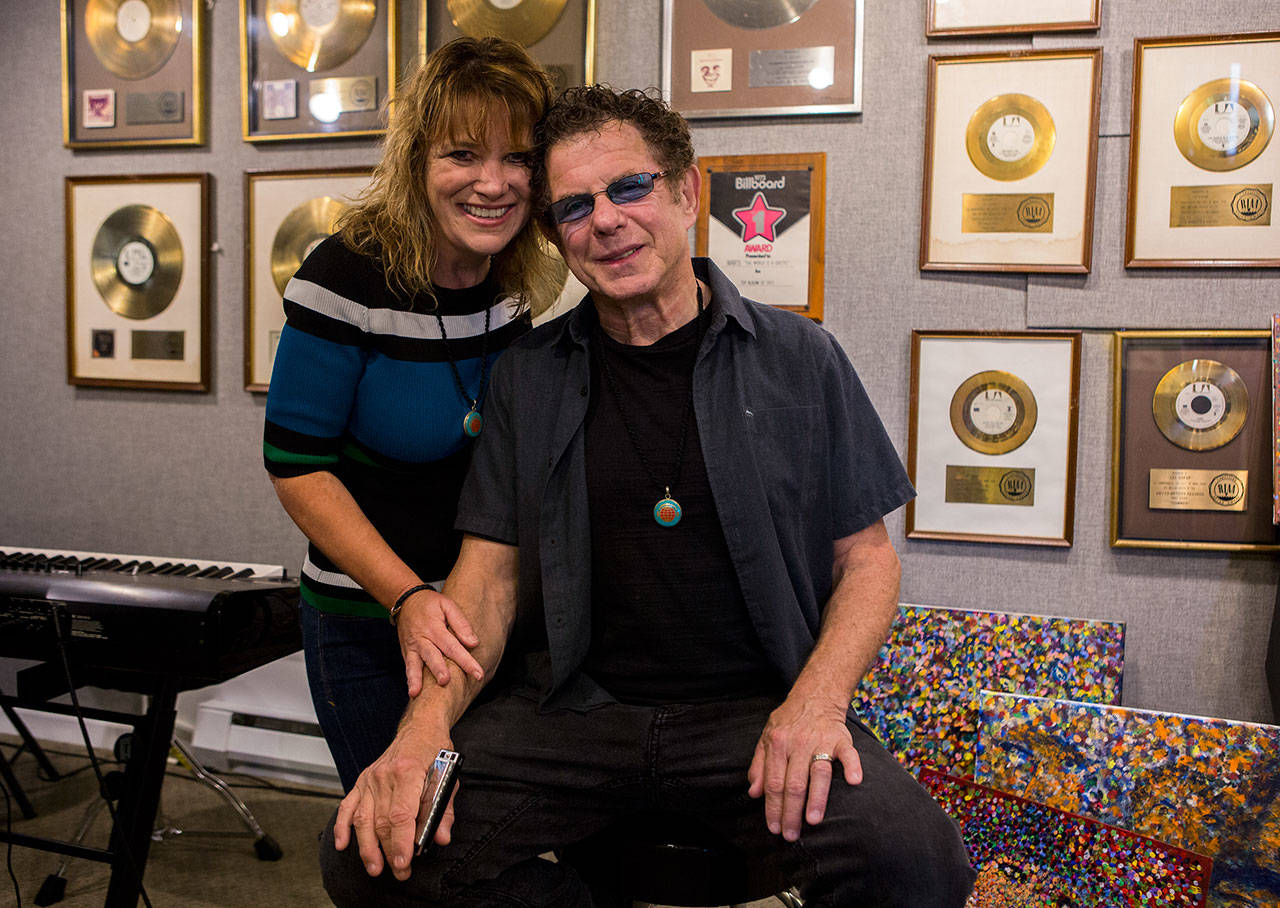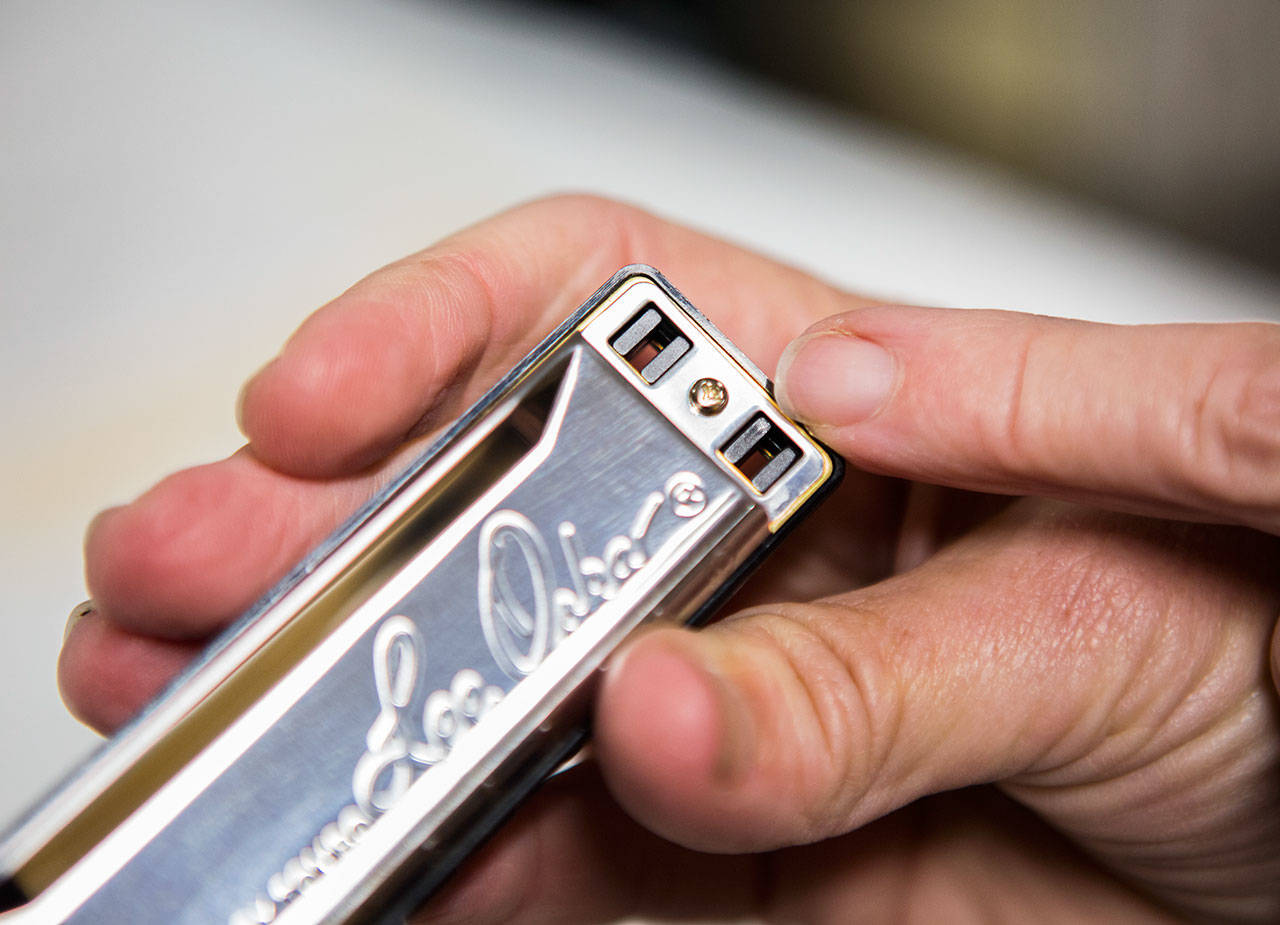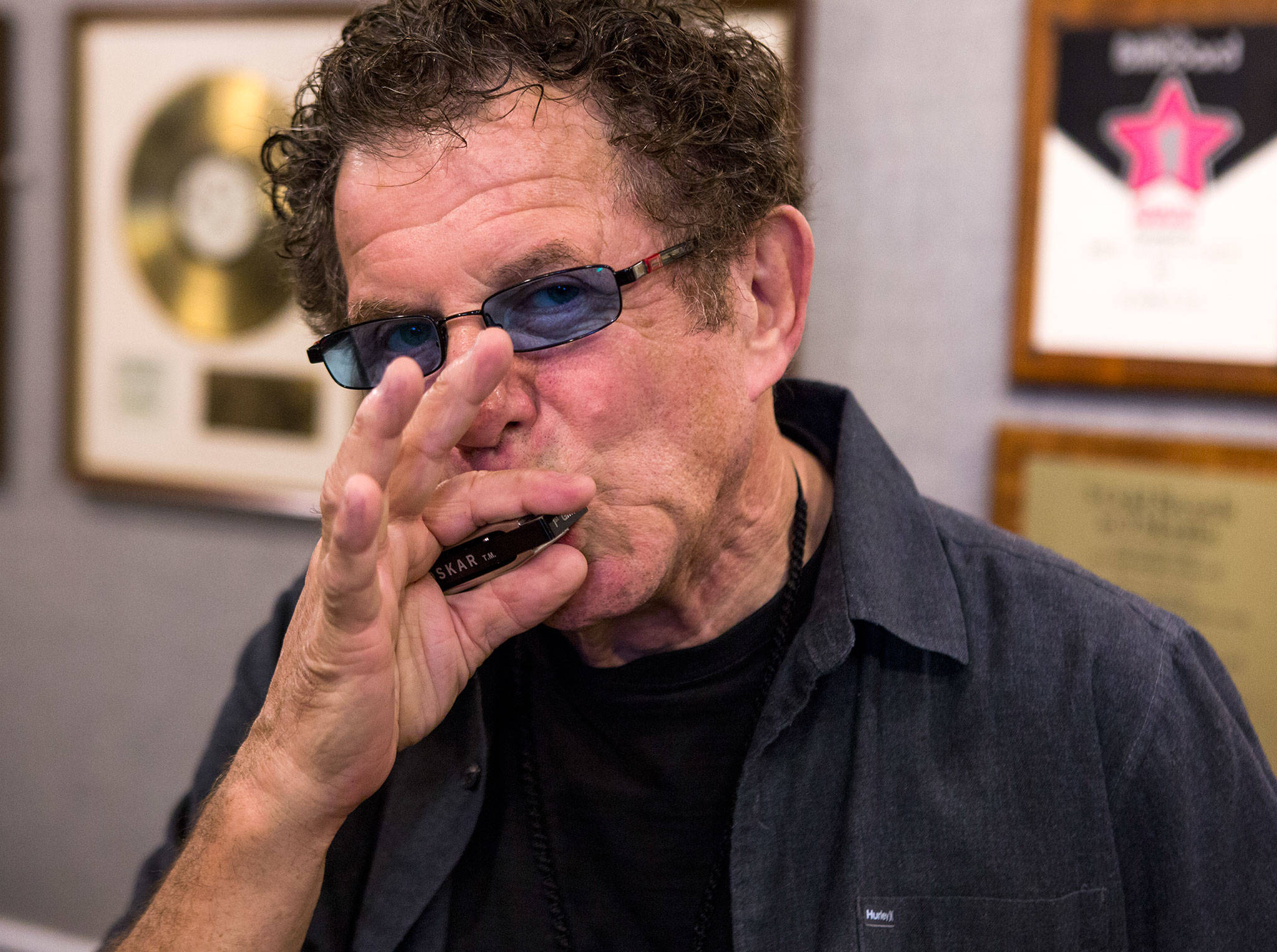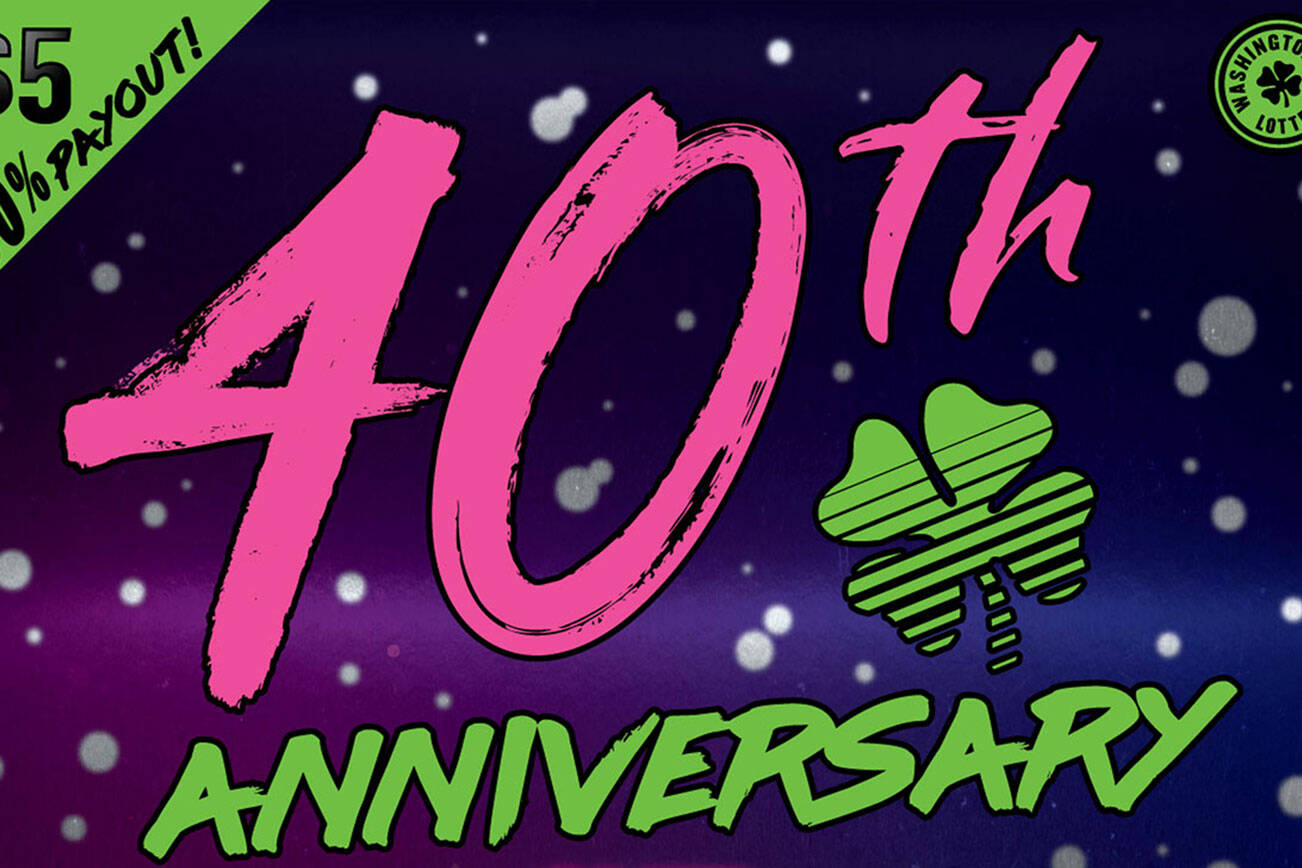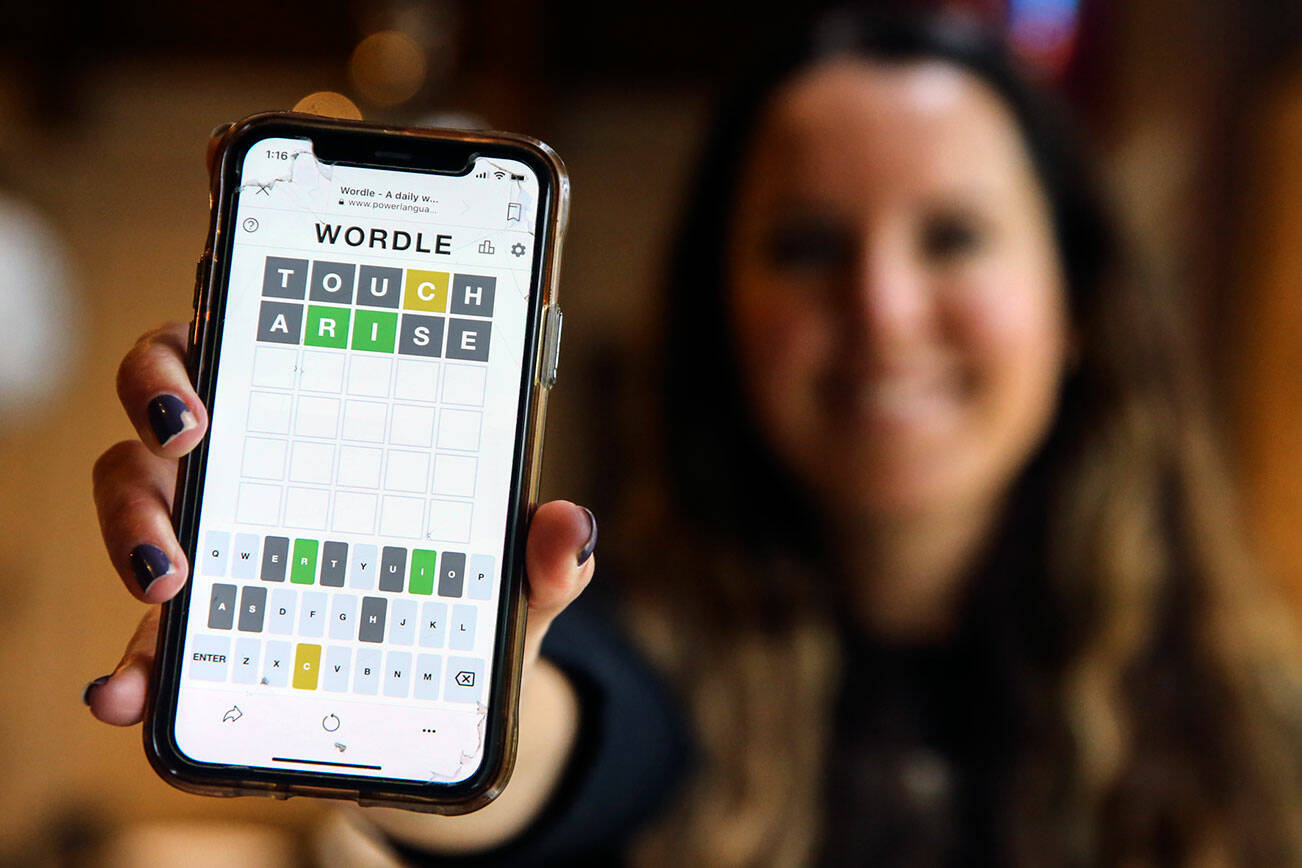EVERETT — Suddenly, it’s 1975 again.
“Low Rider” erupts from the harmonica of a hipster with thick curly brown hair and blue tinted specs.
It sounds just like the way Lee Oskar played it.
What’s up with that?
It is Oskar, the harmonica honcho from the funk-rock-jazz band War.
Usually he has a stage to put on a show, but he doesn’t need one.
On this day, Oskar, 71, plays at a work table in the basement headquarters of a nondescript house in the Glenhaven area that serves as the office of his international harmonica company. It’s a short commute from his home, which is next door.
Oskar lives in Everett? Who knew?
He and his wife, Sri, moved here six years ago from Redmond, attracted by what the area offered in affordability and access. They bought two neighboring houses for home and business.
The Dane who for decades was on album covers and played international venues occasionally gets a bemused “Where do I know you from?” from locals at the grocery store or gas station.
Most people recognize the music more than the man. Back in the day, he had a ’fro and a ’stache.
War’s Gold award hits include “Cisco Kid,” “Spill The Wine,” “The World Is a Ghetto” and “Why Can’t We Be Friends?” The band also received other Gold and Platinum awards for its nearly 30 live, studio and compilation albums and some 60 singles.
Oskar was the 1976 Instrumental Artist of the Year for Billboard, Cashbox and Record World. He received American Society of Composers, Authors and Publishers Music awards for his compositions throughout the years and in 2018.
In addition to War, he focused on a solo music career. His album “Before the Rain” came out in 1978, and many others have been released since. New CDs are in the works.
He founded Lee Oskar Harmonicas in 1983.
He says the harmonica is a tool for the “musically hopeless.”
Like him.
He says it’s as easy as breathing to make music.
“You already breathe, and if you breathe on a harmonica it makes all these sounds like you make music … chords and harmonies,” Oskar said.
It’s easy to master, compared to a guitar, which he says “takes a lot of dexterity before it even sounds musical.”
The products with his signature are handmade in the Japanese factory Tombo. The harps are a collaboration of “their expertise and my ideas and design,” he said. The instruments have an interchangeable system of reeds, combs and cover plates. There are four models, devised with keys for genres that include jazz, ska, reggae, Yiddish, Latin and hip hop.
Oskar’s harps are only sold online and at music stores. A major diatonic model (for blues, folk, rock, pop, country) goes for $44.99 at Guitar Center in Lynnwood. On the wall a few rows away, a Billy Joel signature series is on clearance for about $30.
“Most professional players come in looking for the Lee Oskars,” said Keith Marron, the store’s lessons manager.
Oskar himself drops by on occasion.
“He’s the man,” Marron said. “He’s really cool.”
Sri is “the think tank” of the business, Oskar said.
“One of many,” she said. “It takes a team with Lee.”
The couple met nine years ago at the since-closed White Rabbit in Fremont, where she’d gone with friends to hear the drummer from Santana.
Oskar also paints. He was the art designer for his album covers. Now his boldly colored acrylics cover his walls and have been shown in regional galleries.
The guy oozes talent.
Born Lee Oskar Levitin, he grew up in Copenhagen. Oskar was 6 when a visitor from America brought him a harmonica.
“I fell in love with it, I slept with it. I pretended I was conducting symphonies,” he said. “Anybody who would hear me would not appraise me and say, ‘This kid is good.’ I was lucky. Had they thought I was good they would have said, ‘Potentially he has great talent, we need to put him on violin or piano’ and take me off what that zone was and diminished my enthusiasm. Just breathing in it made me feel like I was making music. It was a big part of my soul.”
He chalks it up to timing.
“It could have been a yo-yo and I never stopped and today you’d be talking to someone who is a yo-yo expert and manufactured yo-yos and professionally do entertainment with yo-yos. One is not more important than the other. It’s whatever your passion is in,” he said.
“If I never got a harmonica I’d be one of the musically hopeless. I compose in my head. I hear, but physically I can’t play anything but this.”
Long story short: After coming to Los Angeles when Oskar was 20, he met British singer Eric Burdon at a club with jam sessions. Burdon had made a name for himself with the rock band The Animals. “Eric wanted to put a new band together.”
The rest is history.
Oskar started the harmonica company while on the music circuit because he thought he could build a better mousetrap.
“I’ve seen Mick Jagger and Bruce Willis play a Lee Oskar,” he said.
His harps are also geared for the ordinary rest of us.
“I hope you walk away saying, ‘I should try a Lee Oskar harmonica,’” he said.
You just never know where it might lead.
“That was my little window to project music was that harmonica. And it’s given me my whole career, my life, my soul, everything,” Oskar said. “It made my dreams come true. I never had a real job, what people call a real job.”
That’s why he doesn’t consider retiring an option.
This week he and Sri are harmonically touring the UK. He led Lee Oskar masterclasses at music stores in London and Cambridge. You can follow his adventures on www.facebook.com/LeeOskarHarmonicas.
Earlier this month, they traveled to New Orleans for Playing for Change Foundation, a charity created to inspire, connect and bring peace to the world through music.
Next up is a Bahamas cruise on Royal Caribbean’s Mariner of the Seas. Oskar is part of the Shine A Little Love Fest, a live music experience with other artists providing a platform of awareness for other nonprofits.
Want to learn how to play “Low Rider”?
He’ll show you how in a workshop on the cruise, harmonica included.
“It takes about an hour to learn,” he said.
But it takes decades to play it like he does. If then.
Andrea Brown: abrown@heraldnet.com; 425-339-3443. Twitter @reporterbrown.
